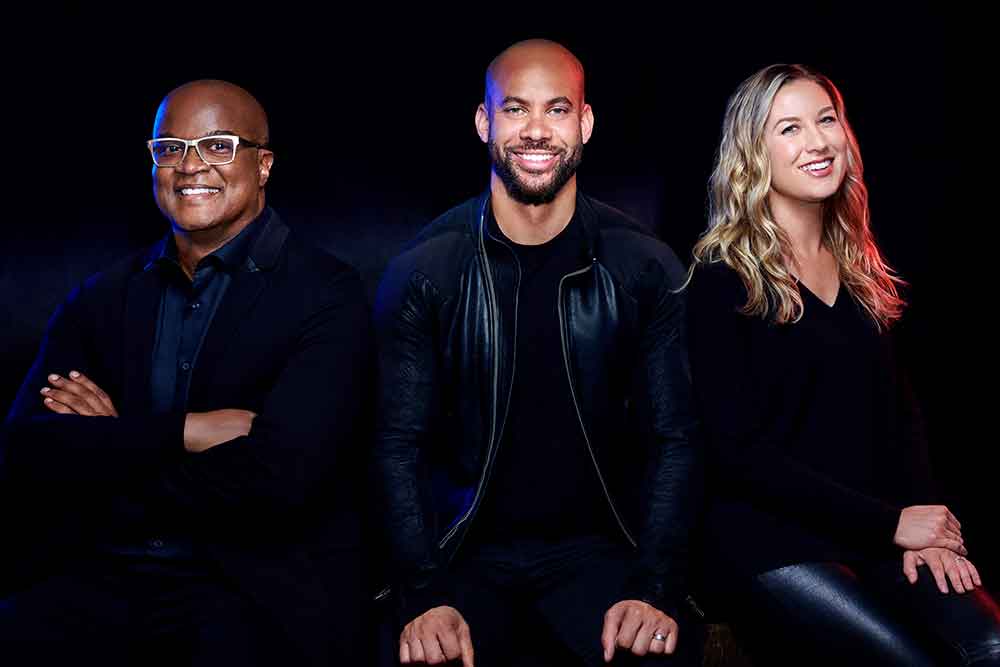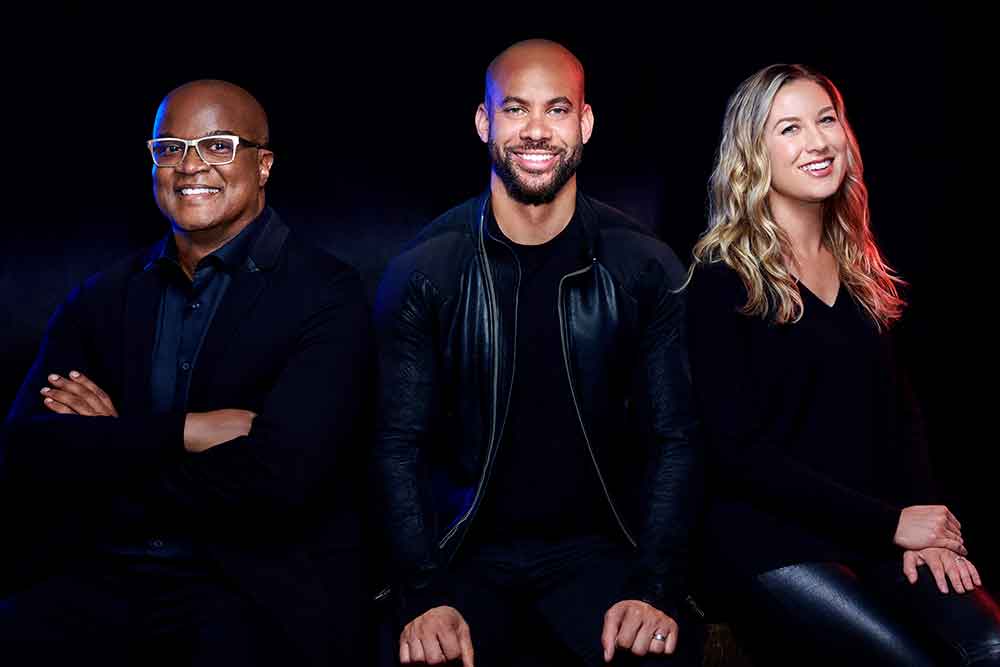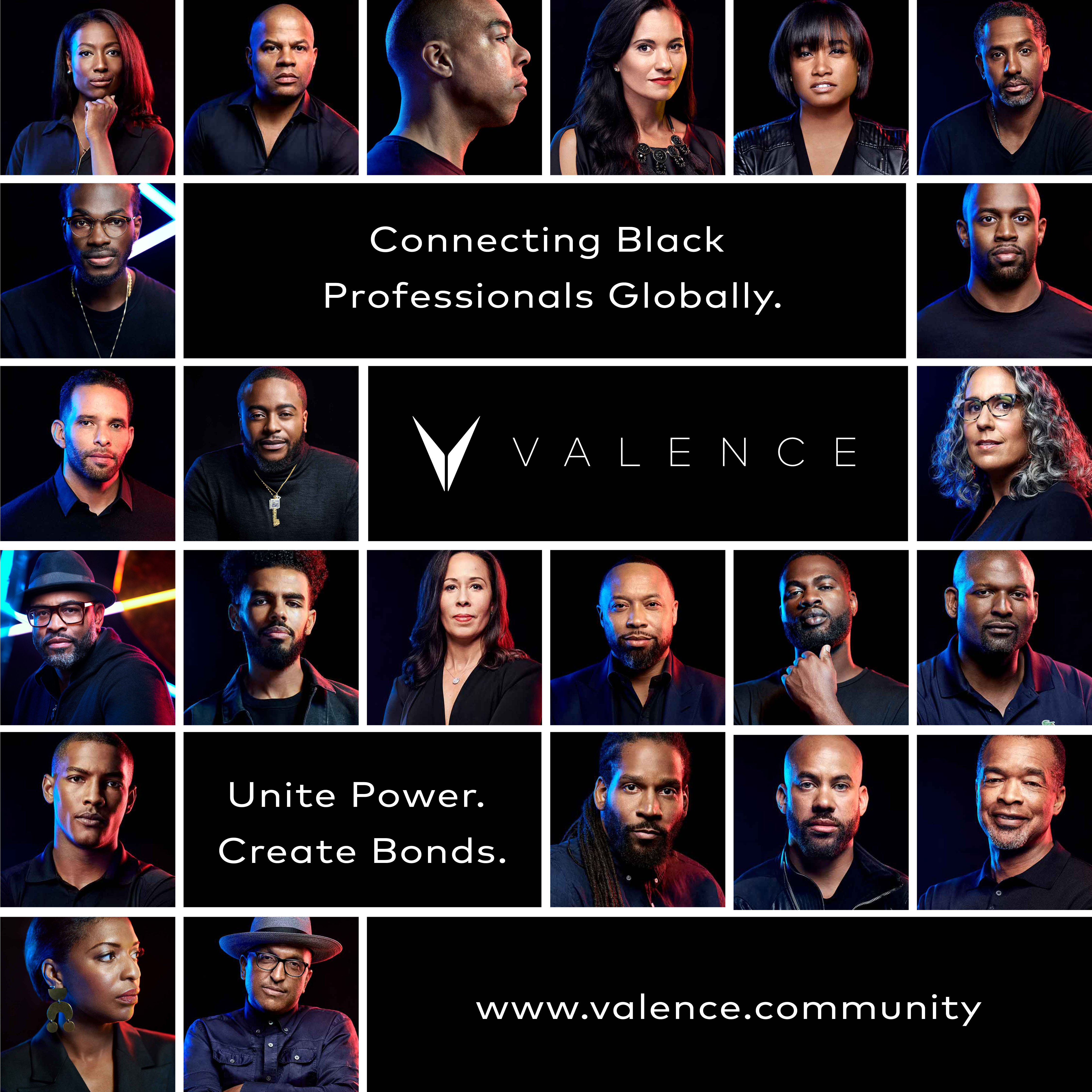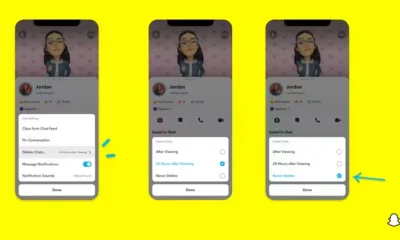The new app is called watchGPT and as I tipped off already, it gives you access to ChatGPT from your Apple Watch. Now the $10,000 question (or more accurately the $3.99 question, as that is the one-time cost of the app) is why having ChatGPT on your wrist is remotely necessary, so let’s dive into what exactly the app can do.
NEWS
Valence launches a social network for black professionals

Over the past two years, as technology companies continued to struggle with diversifying their work forces, Los Angeles-based venture capitalist Kobie Fuller wrestled with how to solve the problem.
As a black professional himself, Fuller had experienced the frustrations and isolation that can sometimes come with being the only person in the room who looked the way he did. He also dealt with being the go-to person for any startup company looking to hire from a diverse pool of candidates.
“For years, companies and venture capitalists have asked me for advice about where they can find amazing Black talent and I had my standard answers — which were basically limited to people in my network, [historically black colleges and universities], and a few niche associations,” said Fuller in a statement. “As a Black VC, I also wanted better visibility into my own community and couldn’t believe that a centralized network of Black professionals didn’t exist yet.”
Sitting in his office at the venture firm Upfront Ventures, overlooking Santa Monica beach and the Pacific Ocean, Fuller says he was a bit puzzled by the fact that no one had come up with the solution to the problem. If the issue was finding talent, why not create a place that could collect those talented individuals in one place and encourage their professional development.
“People would come to me and say ‘I want to hire more black talent’…. And I just didn’t have that magical database in my head. But I thought, wouldn’t it be cool if I did have that magic database of talent,” says Fuller.
That’s how Valence was born. The company, which launches today with $2.5 million from Upfront Ventures, alongside Sinai Ventures, Human Ventures, High Alpha and angel investors like Paul Judge, Peggy Alford and Willie Alford, is the fruit of two years of labor from Fuller and his co-founders La Mer Walker and Emily Slade.

Valence founder La Mer Walker, Kobie Fuller and Emily Slade
“This goes back to when I met Paul Judge for the first time,” says Fuller. “He and I were expecting each other not to be black… It’s like the X-Men, where you think you’re the only mutant and then… “Oh shit! There are all of these other mutants out there! And I thought… Why don’t I just create Cerebro?”
Frankly, corporate America could use a Cerebro to solve its diversity problem, which remains acute not just in the technology industry but across American industry.
Currently only 3% of Silicon Valley’s workforce is black; there are only three black chief executives in the Fortune 500, and only 0.0006% of venture capital funding goes to black female founders. Finally, black people make up 13% of the nation’s population, but only hold 3% of the nation’s wealth, the company said.
Valence’s founders hope to help change that narrative in two ways. The first is simply through the creation of the network, which can serve as a single source for companies looking to hire black candidates into positions at their firms. In a way, it’s similar to how GirlBoss is creating a network for professional women that companies can access for recruiting.
But Valence wants to go beyond simply creating a LinkedIn for black talent, according to Fuller. The company wants to celebrate the stories of those business executives and professionals who have already achieved a level of success that anyone would admire or envy.
“When the spotlight is on Black success, it’s typically on athletes and entertainers — and while we love these superheroes, Valence is putting a third spotlight on Black professionals,” said Walker, a former creative director at the Boston Consulting Group’s Digital Ventures division. “The network effects within the platform will increase the transfer of knowledge and professional advancement, which we think can have a profound impact on the racial wealth gap.”
The social network is open to anyone who identifies as a black professional and anyone who would like to help those professionals as they progress through their careers. Initial candidates are vetted by members of the community, which can vouch for new applicants.

As members of the Valence community, black professionals have access to a global community of high-powered business pros like Fuller, Alford (a senior vice president at PayPal and a director on the Facebook board), Jordan Fudge, the co-founder and managing director of Sinai Ventures, Modi Oyewole, the director of marketing at Epic Records, and Christine Simmons, the chief operating officer of the Motion Picture Academy of Arts.
These members will also have access to job opportunities from top companies, networking events, advice on raising capital and entrepreneurship and a targeted mentorship program focused on providing quick bits of advice or references from direct requests posed to network members.
Companies and individuals who identify as partners can access the network to discover members, post jobs, contact members directly and provide advice, support and events for the community, according to a statement.
“We have thousands of people on our waitlist and are motivated by the massive opportunity to unite across industries and generations,” says Slade. “Doing that in a scalable way through our platform will enable significant progress.”
Valence was incubated within Upfront with an initial $1 million, and Fuller brought Slade and Walker on board as full-time executives, while he retains a director’s seat on the company’s board.
Fuller met Slade, who acknowledges she does not look like a typical candidate for Valence’s community, at a Summit Series conference in Los Angeles about a year ago. Slade, whose grandmother and grandfather couldn’t get married in the state of California because he was black and she was white, knew the problems that the community faced, and had spent her professional career building online communities.
“I had the professional experience and the personal background that aligned with what Kobie wanted to do,” she says. After their initial meeting the two began collaborating on how to bring Valence to the world.
Now, the company is live after 10 months of work and hoping to tackle a problem whose solution has eluded some of the biggest names in the technology industry.
“Google has spent over $200 million on their diversity initiatives and you see the numbers rising,” says Slade, but it’s happening too slowly.
Following the launch, the company says its next step will be to bring its footprint to an increasingly global network of professionals representing other diaspora communities.
“Next year you will see people from different regions come into the fold,” says Walker. “There will be connections to the different diasporic communities that are out there.”
Facebook Faces Yet Another Outage: Platform Encounters Technical Issues Again

Uppdated: It seems that today’s issues with Facebook haven’t affected as many users as the last time. A smaller group of people appears to be impacted this time around, which is a relief compared to the larger incident before. Nevertheless, it’s still frustrating for those affected, and hopefully, the issues will be resolved soon by the Facebook team.
Facebook had another problem today (March 20, 2024). According to Downdetector, a website that shows when other websites are not working, many people had trouble using Facebook.
This isn’t the first time Facebook has had issues. Just a little while ago, there was another problem that stopped people from using the site. Today, when people tried to use Facebook, it didn’t work like it should. People couldn’t see their friends’ posts, and sometimes the website wouldn’t even load.
Downdetector, which watches out for problems on websites, showed that lots of people were having trouble with Facebook. People from all over the world said they couldn’t use the site, and they were not happy about it.
When websites like Facebook have problems, it affects a lot of people. It’s not just about not being able to see posts or chat with friends. It can also impact businesses that use Facebook to reach customers.
Since Facebook owns Messenger and Instagram, the problems with Facebook also meant that people had trouble using these apps. It made the situation even more frustrating for many users, who rely on these apps to stay connected with others.
During this recent problem, one thing is obvious: the internet is always changing, and even big websites like Facebook can have problems. While people wait for Facebook to fix the issue, it shows us how easily things online can go wrong. It’s a good reminder that we should have backup plans for staying connected online, just in case something like this happens again.
NEWS
We asked ChatGPT what will be Google (GOOG) stock price for 2030

Investors who have invested in Alphabet Inc. (NASDAQ: GOOG) stock have reaped significant benefits from the company’s robust financial performance over the last five years. Google’s dominance in the online advertising market has been a key driver of the company’s consistent revenue growth and impressive profit margins.
In addition, Google has expanded its operations into related fields such as cloud computing and artificial intelligence. These areas show great promise as future growth drivers, making them increasingly attractive to investors. Notably, Alphabet’s stock price has been rising due to investor interest in the company’s recent initiatives in the fast-developing field of artificial intelligence (AI), adding generative AI features to Gmail and Google Docs.
However, when it comes to predicting the future pricing of a corporation like Google, there are many factors to consider. With this in mind, Finbold turned to the artificial intelligence tool ChatGPT to suggest a likely pricing range for GOOG stock by 2030. Although the tool was unable to give a definitive price range, it did note the following:
“Over the long term, Google has a track record of strong financial performance and has shown an ability to adapt to changing market conditions. As such, it’s reasonable to expect that Google’s stock price may continue to appreciate over time.”
GOOG stock price prediction
While attempting to estimate the price range of future transactions, it is essential to consider a variety of measures in addition to the AI chat tool, which includes deep learning algorithms and stock market experts.
Finbold collected forecasts provided by CoinPriceForecast, a finance prediction tool that utilizes machine self-learning technology, to anticipate Google stock price by the end of 2030 to compare with ChatGPT’s projection.
According to the most recent long-term estimate, which Finbold obtained on March 20, the price of Google will rise beyond $200 in 2030 and touch $247 by the end of the year, which would indicate a 141% gain from today to the end of the year.
Google has been assigned a recommendation of ‘strong buy’ by the majority of analysts working on Wall Street for a more near-term time frame. Significantly, 36 analysts of the 48 have recommended a “strong buy,” while seven people have advocated a “buy.” The remaining five analysts had given a ‘hold’ rating.

The average price projection for Alphabet stock over the last three months has been $125.32; this objective represents a 22.31% upside from its current price. It’s interesting to note that the maximum price forecast for the next year is $160, representing a gain of 56.16% from the stock’s current price of $102.46.
While the outlook for Google stock may be positive, it’s important to keep in mind that some potential challenges and risks could impact its performance, including competition from ChatGPT itself, which could affect Google’s price.
Disclaimer: The content on this site should not be considered investment advice. Investing is speculative. When investing, your capital is at risk.
NEWS
This Apple Watch app brings ChatGPT to your wrist — here’s why you want it

ChatGPT feels like it is everywhere at the moment; the AI-powered tool is rapidly starting to feel like internet connected home devices where you are left wondering if your flower pot really needed Bluetooth. However, after hearing about a new Apple Watch app that brings ChatGPT to your favorite wrist computer, I’m actually convinced this one is worth checking out.
-

 PPC6 days ago
PPC6 days ago19 Best SEO Tools in 2024 (For Every Use Case)
-

 MARKETING7 days ago
MARKETING7 days agoEcommerce evolution: Blurring the lines between B2B and B2C
-
SEARCHENGINES5 days ago
Daily Search Forum Recap: April 19, 2024
-
SEARCHENGINES6 days ago
Daily Search Forum Recap: April 18, 2024
-

 WORDPRESS6 days ago
WORDPRESS6 days agoHow to Make $5000 of Passive Income Every Month in WordPress
-

 SEO7 days ago
SEO7 days ago2024 WordPress Vulnerability Report Shows Errors Sites Keep Making
-

 WORDPRESS6 days ago
WORDPRESS6 days ago10 Amazing WordPress Design Resouces – WordPress.com News
-

 SEO6 days ago
SEO6 days ago25 WordPress Alternatives Best For SEO















